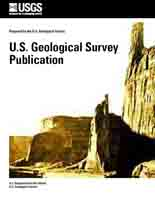Preliminary Toxicological Analysis of the Effect of Coal Slurry Impoundment Water on Human Liver Cells
Links
- More information: USGS Index Page (html)
- Download citation as: RIS | Dublin Core
Abstract
Suggested Citation
Bunnell, J.E., 2008, Preliminary Toxicological Analysis of the Effect of Coal Slurry Impoundment Water on Human Liver Cells (Version 1.1, Revised Oct 2008): U.S. Geological Survey Open-File Report 2008-1143, Report: iii, 7 p., https://doi.org/10.3133/ofr20081143.
ISSN: 2331-1258 (online)
| Publication type | Report |
|---|---|
| Publication Subtype | USGS Numbered Series |
| Title | Preliminary Toxicological Analysis of the Effect of Coal Slurry Impoundment Water on Human Liver Cells |
| Series title | Open-File Report |
| Series number | 2008-1143 |
| DOI | 10.3133/ofr20081143 |
| Edition | Version 1.1, Revised Oct 2008 |
| Year Published | 2008 |
| Language | ENGLISH |
| Publisher | Geological Survey (U.S.) |
| Contributing office(s) | U.S. Geological Survey |
| Description | Report: iii, 7 p. |
| Online Only (Y/N) | Y |


